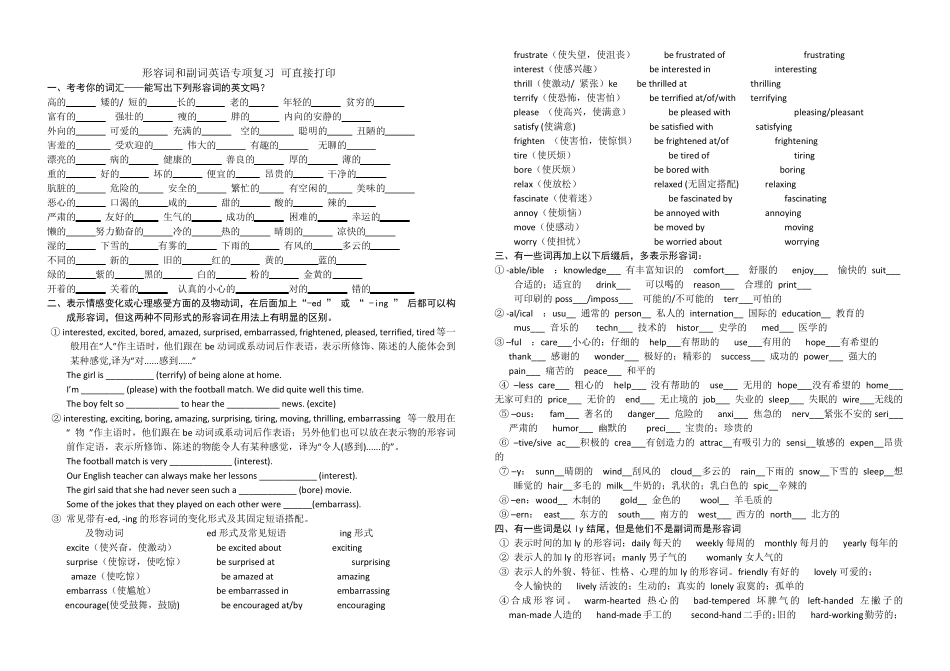形容词和副词英语专项复习 可直接打印 一、考考你的词汇——能写出下列形容词的英文吗? 高的 矮的/ 短的 长的 老的 年轻的 贫穷的 富有的 强壮的 瘦的 胖的 内向的安静的 外向的 可爱的 充满的 空的 聪明的 丑陋的 害羞的 受欢迎的 伟大的 有趣的 无聊的 漂亮的 病的 健康的 善良的 厚的 薄的 重的 好的 坏的 便宜的 昂贵的 干净的 肮脏的 危险的 安全的 繁忙的 有空闲的 美味的 恶心的 口渴的 咸的 甜的 酸的 辣的 严肃的 友好的 生气的 成功的 困难的 幸运的 懒的 努力勤奋的 冷的 热的 晴朗的 凉快的 湿的 下雪的 有雾的 下雨的 有风的 多云的 不同的 新的 旧的 红的 黄的 蓝的 绿的 紫的 黑的 白的 粉的 金黄的 开着的 关着的 认真的小心的 对的 错的 二、表示情感变化或心理感受方面的及物动词,在后面加上“-ed ” 或 “ -ing ” 后都可以构成形容词,但这两种不同形式的形容词在用法上有明显的区别。 ① interested, excited, bored, amazed, surprised, embarrassed, frightened, pleased, terrified, tired等一般用在“人” 作主语时,他们跟在 be 动词或系动词后作表语,表示所修饰、陈述的人能体会到某种感觉,译为“对......感到......” The girl is __________ (terrify) of being alone at home. I’m _________ (please) with the football match. We did quite well this time. The boy felt so ___________ to hear the ___________ news. (excite) ② interesting, exciting, boring, amazing, surprising, tiring, moving, thrilling, embarrassing 等一般用在“ 物 ” 作主语时,他们跟在 be 动词或系动词后作表语;另外他们也可以放在表示物的形容词前作定语,表示所修饰、陈述的物能令人有某种感觉,译为“令人(感到)......的” 。 The football match is very _____________ (interest). Our English teacher can always make her lessons ____________ (interest). The girl said that she had never seen such a ____________ (bore) movie. Some of the jokes that they played on each other were ______(embarrass). ③ 常见带有-ed, -ing 的形容词的变化形式及其固定短语搭配。 及物动词 ed 形式...


